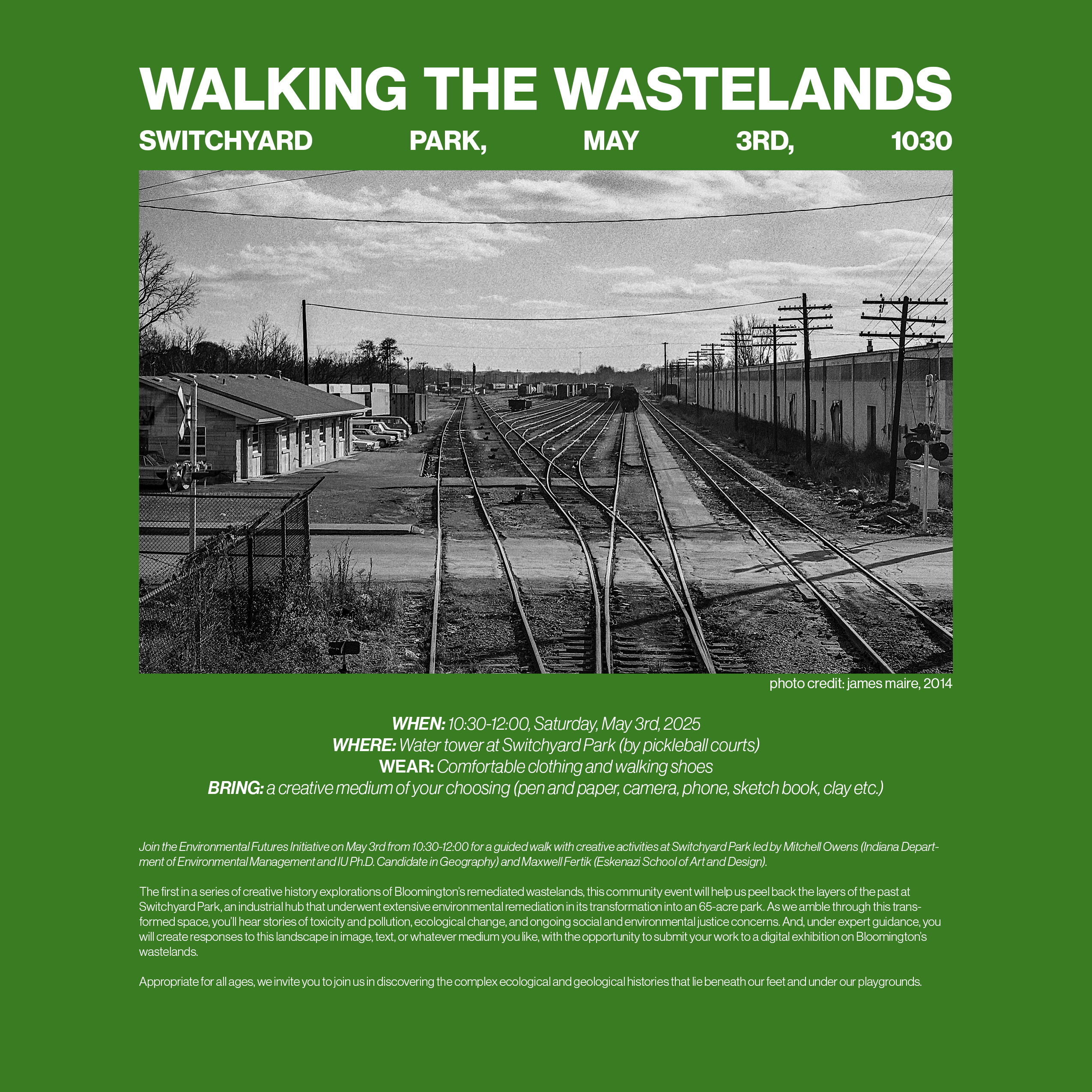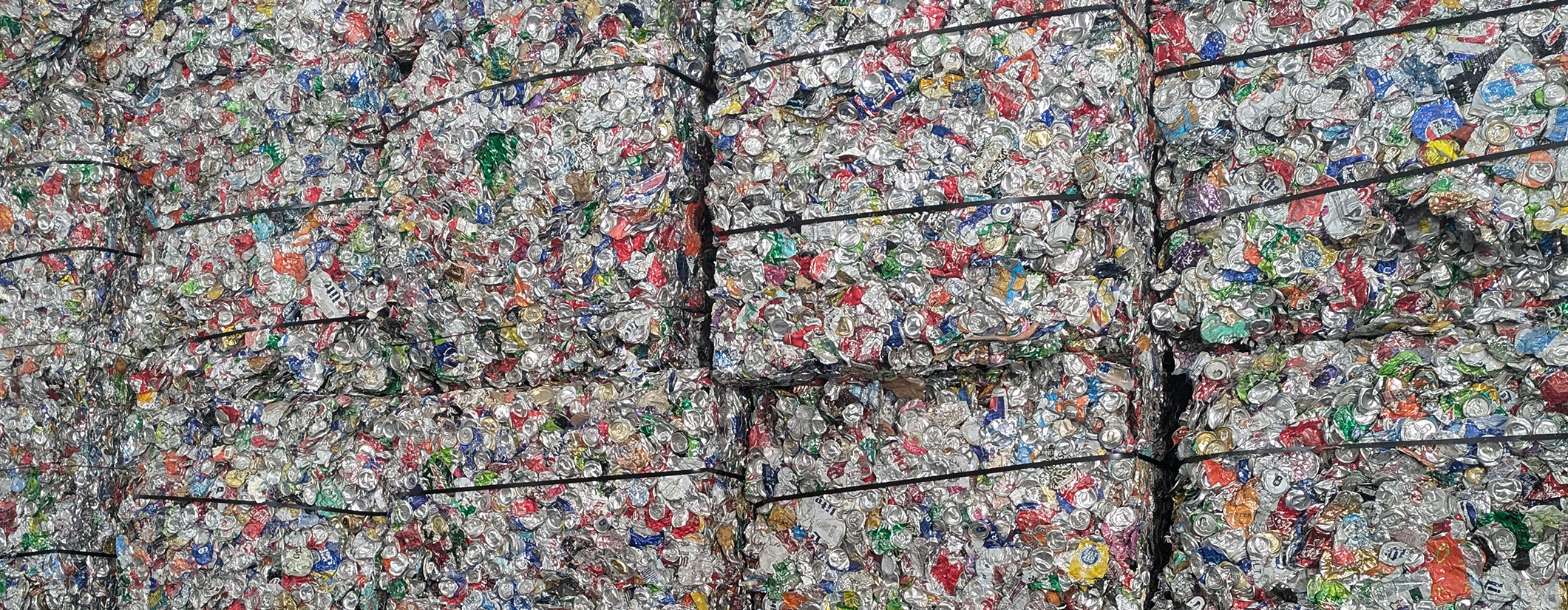The Waste/Lands Project
 This project uses the polysemy of “waste” to catalyze community-oriented humanist research and artistic production that explore new ways to understand and represent wastelands, to imagine creative reuse, repair, and rejuvenation, to study landscapes, both neglected and in various states requiring regeneration, and especially to invite further attention to those communities most affected by both the wasteland and its remediation. Although the project’s principal aim is to encourage a wide-ranging conversation about the social and ecological ethics of wastelands, we are investing in projects focused on studying the art, music, and literature made about and from wastelands. In this interdisciplinary and multi-modal approach, we hope that researchers, practitioners, and community partners will investigate and innovate new ways of thinking about land use, waste systems, and the communities they most affect.
This project uses the polysemy of “waste” to catalyze community-oriented humanist research and artistic production that explore new ways to understand and represent wastelands, to imagine creative reuse, repair, and rejuvenation, to study landscapes, both neglected and in various states requiring regeneration, and especially to invite further attention to those communities most affected by both the wasteland and its remediation. Although the project’s principal aim is to encourage a wide-ranging conversation about the social and ecological ethics of wastelands, we are investing in projects focused on studying the art, music, and literature made about and from wastelands. In this interdisciplinary and multi-modal approach, we hope that researchers, practitioners, and community partners will investigate and innovate new ways of thinking about land use, waste systems, and the communities they most affect.
This project has several major components:
- Three Symposia over the 2024-25 academic year, which organizers hope will generate the foundation for edited volume that offers a global, diachronic approach to wastes and wastelands.
Nov. 1-2, 2024: “Premodern Waste/Lands," organized by Shannon and Joey McMullen (English)
Feb 8, 2025: “Ecologies of Waste," organized by Sara Gregg and Andy Bruno (History)
April 11, 2025: “Arts and Aesthetics of Waste and the Wasted," organized by Rebecca Dirksen (Ethnomusicology) with a special workshop performance of Kevin Rittberger's new play, "Two Suns and a Setting," followed by a roundtable, organized by Teresa Kovacs (Germanic Studies)
- Graduate Reading Group: Run by Grace Miller; meets every other week Tuesdays at 4pm to discuss articles, books, and creative writing related to wastes, wastelands, and/or “discard studies”
- “Walking the Wastelands” a community-based creative history project: a series of guided walks in Bloomington’s (remediated) wastelands led by experts and/or artists. Participants will be encouraged to document, write, or create an account of or response to the place’s history or their experience of some element of it. We hope to curate these for a digital exhibition. Upcoming walks include:
Switchyard Park (May 3, 2025)
Lake Monroe (Summer 2025)
"Environmental Ethics and Humanities" Concentration and Minor
The Environmental Futures team applied for an NEH Curriculum grant for this in August 2024, but are already beginning to make progress on it, with a new concentration in “Environmental Ethics and Humanities” proposed for the Bachelor of Arts in Environmental and Sustainability Studies, and a proposal for the minor in “Environmental Arts and Humanities” under discussion through the Integrated Program int the Environment.
As part of tour curricular work, we have created several new courses, including ENG L219, “Introduction to Environmental Literature,” which Shannon Gayk will be teaching in the spring of 2025; and ENG L377, “Studies in Ecological Literature and Theory.”
Fall 2024 Projects
Team member Brian Forist brought in Gary Machlis, author of Sustainability for the Forgotten for a series of talks and events in October.
Teresa Kovacs organized a day-long symposium around theater and performance in the Anthropocene, supported by the Environmental Futures initiative. We are discussing collaborating on a workshop staging and discussion of a German play about wastes and wastelands in the spring.
Team member Rebecca Dirksen is organizing a short residency of a Haitian performance troupe, “Makandal,” who will be at IU in early December 2024. This residency will include a film showing at the IU Cinema, a performance, and a workshop.
Team member Sara Gregg, in collaboration with other history faculty, has developed a departmental cluster focused on environmental history, with plans to admit a graduate cohort in this area for the next few years.
The Environmental Futures team has collaborated with Cultural Studies to help publicize their “Planetary Futures” lecture series.
Ongoing Individual Projects and Publications
Rebecca Dirksen is working on a book manuscript entitled Against Scorched Earth: Haitian Vodou as Sacred Ecology.
Shannon Gayk’s book, Apocalyptic Ecologies: From Creation to Doom in Middle English Literature, will be published on December 6, 2024. She has also been giving talks, notably speaking at Northwestern, Yale, UC Irvine, and UNC Asheville, and doing podcast interviews (New Books network) on the book. She is also also working on a series of short public-facing pieces derived from the book.


